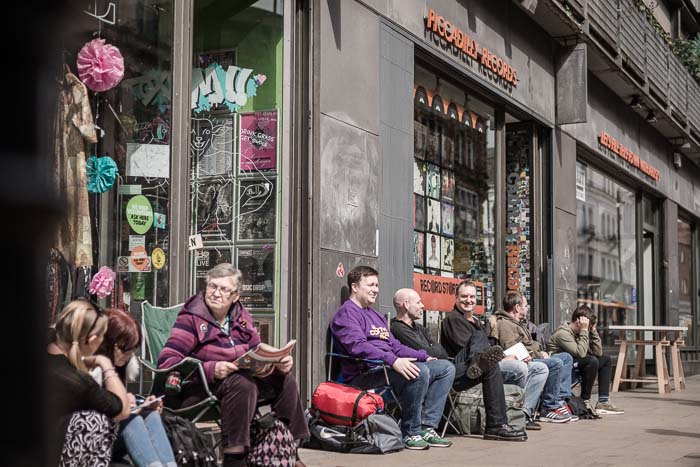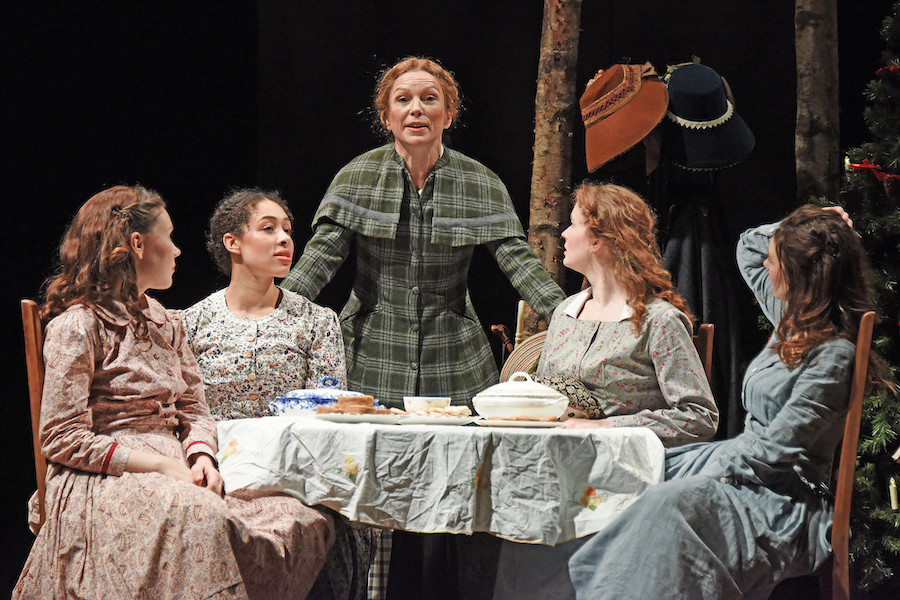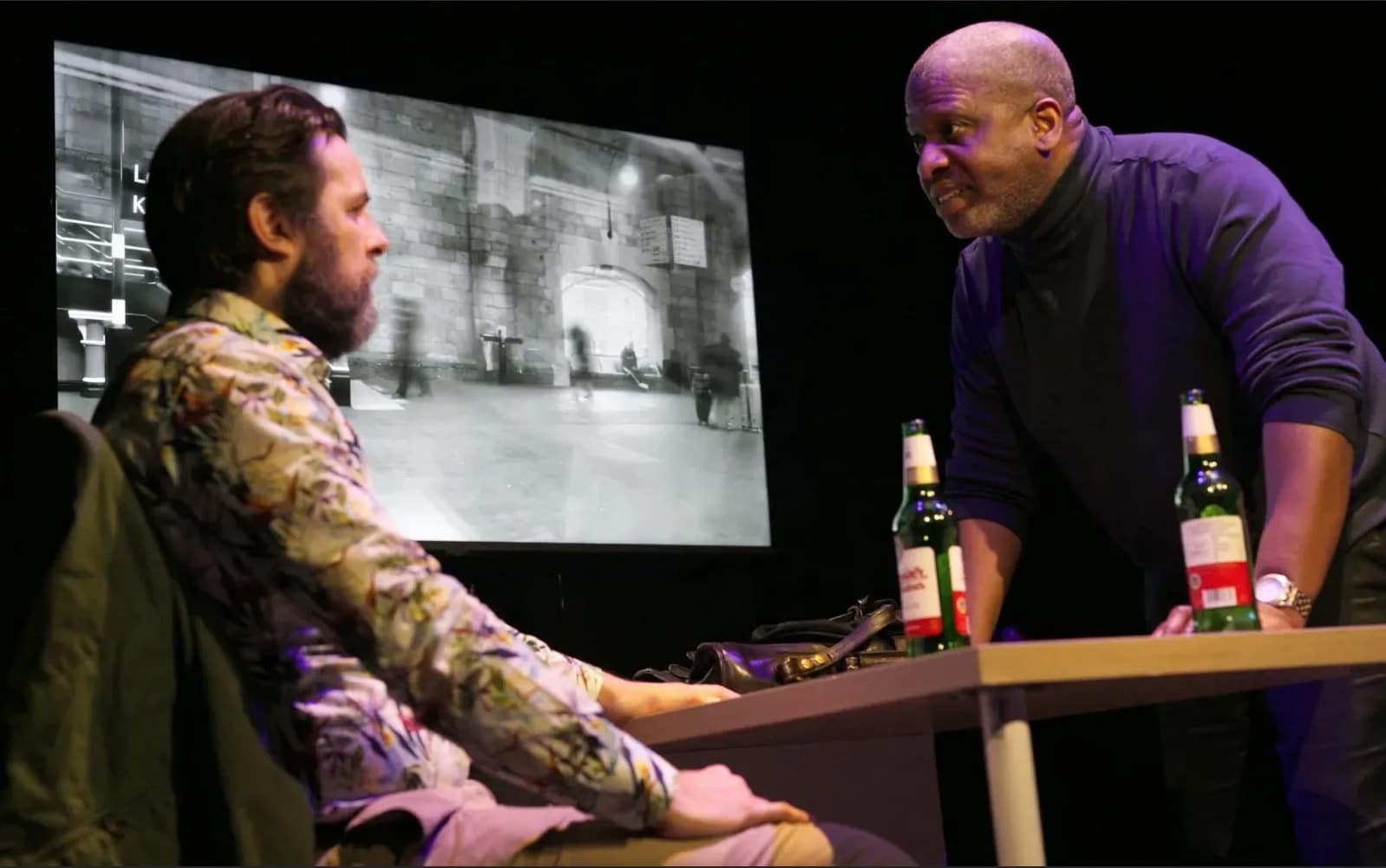What is happening to Manchester’s music venues?
- Written by Emily Oldfield
- Last updated 8 years ago
- Culture, Music
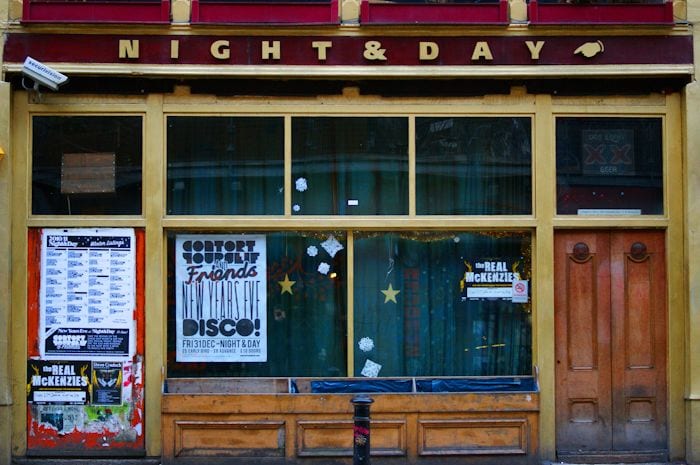
Morrissey’s There Is A Light That Never Goes Out refers to the north’s unbreakable spirit. But it seems that the light is going out at many of our music venues.
Tiger Lounge and Dry Bar – both well-loved music venues with colourful histories – have now officially closed, adding to a list that’s been growing for a while.
Some call this progress. After all, new venues often replace the old and recent statistics show that Manchester still has more gigs per person than anywhere else in the UK.
One of the biggest casualties has been The Roadhouse, which hosted live music for 22 years until its closure in 2015. Coldplay, Muse and The White Stripes all played there – and Guy Garvey of Elbow even used to pull pints there. In other words, it’s a big loss to our musical history.
It could be argued that there are just as many new music spaces in Manchester, such as large-scale investment venues HOME and the Factory.
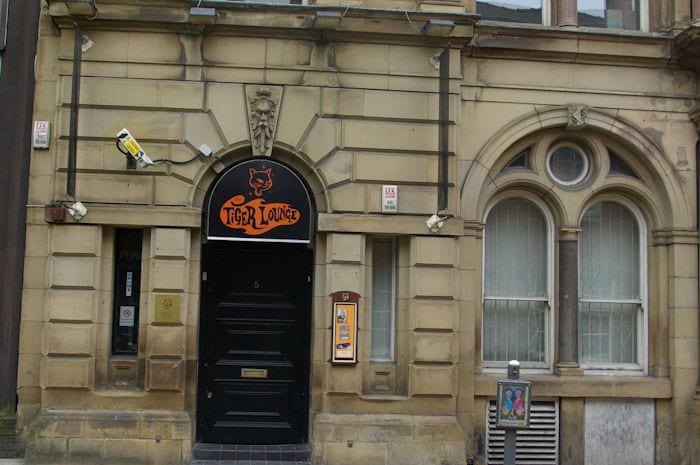
But we’ve also seen a decline in music spaces that are typically cheap or free to hire, meaning that young bands risk being priced out of the music circuit. According to the Music Venue Trust, 40% of small-scale venues have disappeared in the past decade.
This statistic certainly rings true in Manchester. Other venues that have closed include Sankeys in Ancoats and Retro Bar on Sackville Street – formerly known as The Swinging Sporan and famed for its alternative gigs.
Redevelopment is a factor behind the recent closures, according to a statement by Tiger Lounge on Facebook: ‘The reason behind the closure? Change, and what some would refer to as progress. There is a major redevelopment planned that will transform our building into apartments. Because of this decision, we were not able to negotiate any extension of our lease and we have had to move once again.’
Most recently, The Crescent Pub in Salford, known for its live music and jamming sessions which pulled audiences in from across Manchester, shut its doors.
There is a tension between nostalgia for the old and the need for ‘progress’. As musician and writer Aidan Cross explains:
“They’re all a big loss and it feels like Manchester’s music culture has been pushed underground to a big extent. Yet this may not be a bad thing as we may see more underground venues spring up in derelict places like Aatma or some of the smaller pubs like the ones in Salford.
“When I arrived in Manchester in 2000, the city was lamenting the loss of places like the Hacienda, Pip’s Disco, The Boardwalk and The Ranch, places before my time that I never got to go to.
“I guess things will always change but, whatever the case, Manchester’s music and art culture will undoubtedly survive and thrive. It’s just a matter of what form it takes and whether it goes completely underground.”
But there are still venues which are approachable and affordable for bands in their early stages. Places like Jimmy’s NQ and Aatma, whilst popular music nights can be found at The Whiskey Jar and Texture.
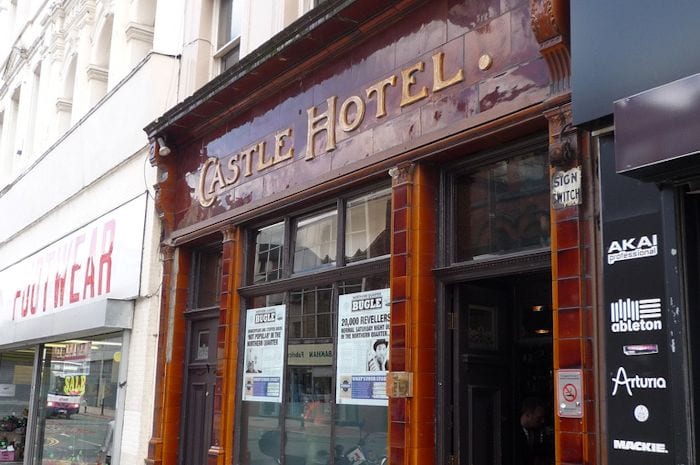
In fact, John Robb, bass player with The Membranes and chief editor of Louder Than War, claims many venues are thriving – including older spots like Gullivers and The Castle Hotel on Oldham Street, alongside spots like The Eagle and The Kings Arms in Salford.
There are also venues which regularly reach maximum capacity hosting local and visiting artists including the O2 Apollo, Manchester Academy and The Manchester Arena.
These larger, more money-driven venues make up the biggest chunk of the live gig statistics, and visiting artists don’t account for the smaller spaces catering to more specific audiences.
And costs keep growing. In April 2017, every commercial property in the country had its business rates revalued, leaving many smaller venues struggling. It can sometimes seem disproportionate, especially in an age when the music industry generates an annual £4.1 billion for the UK economy – much of this coming from venues capable of charging hundreds of pounds for a ticket.
Their success could be contributing to the closure of alternative venues. The Star and Garter a prime example.
The pub has been threatened with closure multiple times. Last year, it faced a compulsory purchase order because of the expansion of Piccadilly Station. But it’s still going and celebrating its 140th birthday at its current site this year. It’s home to Smile and the Morrissey Smiths Disco, two of the longest-running club nights in the city – something which has worked in its favour, according to owner Andy Martin:
“I think the events here are iconic, not so much the Star and Garter itself. If the place was anywhere else in Manchester city centre, then it could be seen as iconic. In reality. it’s been struggling for 27 years as a music venue, so I can only thank everyone who’s made the effort to find the place.
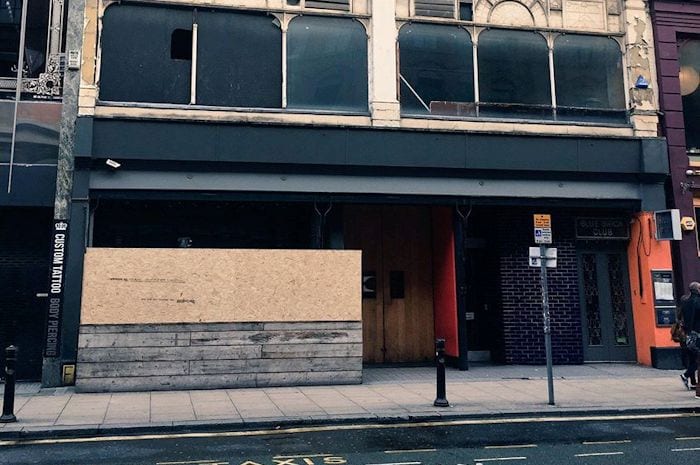
“The arrival of Grub [the weekly food fair] at Mayfield and the redevelopment by U&I has slowly started to turn the area around but it won’t be a quick fix by any means, so we’ll continue to rely on opening just for bookings as we have done for years. Once I’m in a position when it actually becomes worthwhile to open as a pub day and night regardless of whether there’s a booking, then I’ll know that Mayfield has begun to work.”
So it seems that many venue owners are planning for the worst, and adapting to surrounding developments is the ultimate goal. But there are others who’ve stubbornly maintained their identity whilst also benefitting from the developments.
Take Sound Control, the 500-capacity music venue on Oxford Road. Despite being threatened with closure – there are plans to build student accommodation – owner Andrew O’Dwyer is confident that it could move premises and capture an even bigger audience, as the combination of club nights, visiting artists and parties keep the three floors packed.
But because musicians and DJs are rapidly changing where and how they create music, it’s a bumpy ride for venues who thrive on the support of their own fans. In other words, rather than just pander to particular artists, the venues need fans in order to survive – people willing to buy tickets and drinks, even if they don’t know the musicians playing.
As long as people stay home on weekends, it seems likely that Manchester’s music scene will continue to dry out.
At a time when people can connect with whatever they want, whenever they want – often for free – the physical presence of fans is more important than ever. But it seems the more selective we become, the lower our tolerance for live environments, as many people seem less open to experimental experiences or attending gigs they’ve never heard of.
This has a huge impact because all successful venues have one thing in common – a strong relationship with their fans.
But sometimes these relationships require maintenance. Legislation is a big part of this, as can be seen when the fate of popular event space Islington Mill became uncertain following noise complaints from a nearby resident. This put it at risk of not having its license renewed, with similar threats often hitting Northern Quarter venues like Night and Day.
There’s an obvious appetite for music in places which combine foodie culture with creative space such as Soup Kitchen and Gorilla, with sets even playing in Grindsmiths coffee shop.
These places deliver a range of music, from DJ sets and dance pop to folk music and punk bands. This means their audiences are usually short-term, so they rely heavily on food and drink to stay open.
While mixing music and dining culture may not be your cup of tea, it seems to be the key to survival – accommodating individuals while appealing to the masses.
Preserving Manchester’s cherished corners and characterful venues seems possible, but it won’t be easy. It requires venues to adapt for the times while maintaining their individuality and, most importantly, for loyal fans to go start attending gigs regularly once again.
So go online, buy a ticket and support your local venues. You don’t know how long they have left.
- This article was last updated 8 years ago.
- It was first published on 22 August 2017 and is subject to be updated from time to time. Please refresh or return to see the latest version.
Did we miss something? Let us know: press@ilovemanchester.com
Want to be the first to receive all the latest news stories, what’s on and events from the heart of Manchester? Sign up here.
Manchester is a successful city, but many people suffer. I Love Manchester helps raise awareness and funds to help improve the lives and prospects of people across Greater Manchester – and we can’t do it without your help. So please support us with what you can so we can continue to spread the love. Thank you in advance!
An email you’ll love. Subscribe to our newsletter to get the latest news stories delivered direct to your inbox.
Got a story worth sharing?
What’s the story? We are all ears when it comes to positive news and inspiring stories. You can send story ideas to press@ilovemanchester.com
While we can’t guarantee to publish everything, we will always consider any enquiry or idea that promotes:
- Independent new openings
- Human interest
- Not-for-profit organisations
- Community Interest Companies (CiCs) and projects
- Charities and charitable initiatives
- Affordability and offers saving people over 20%
For anything else, don’t hesitate to get in touch with us about advertorials (from £350+VAT) and advertising opportunities: advertise@ilovemanchester.com
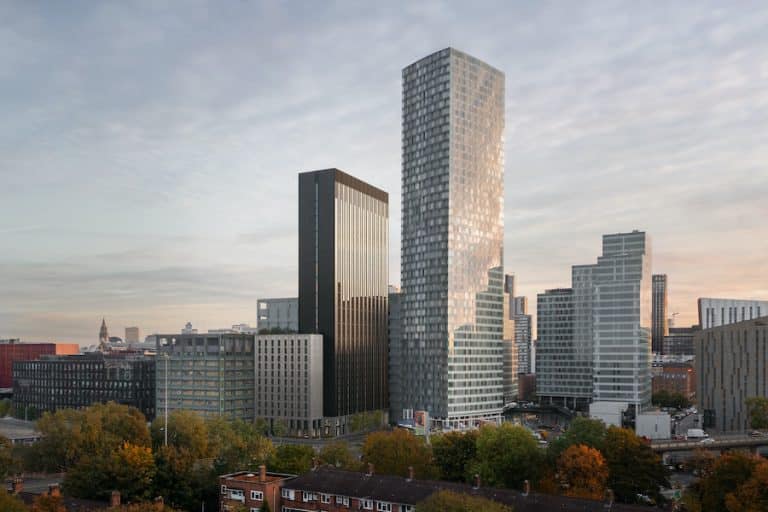

The Manc aerobics queen who trained the Corrie cast is helping raise charity cash
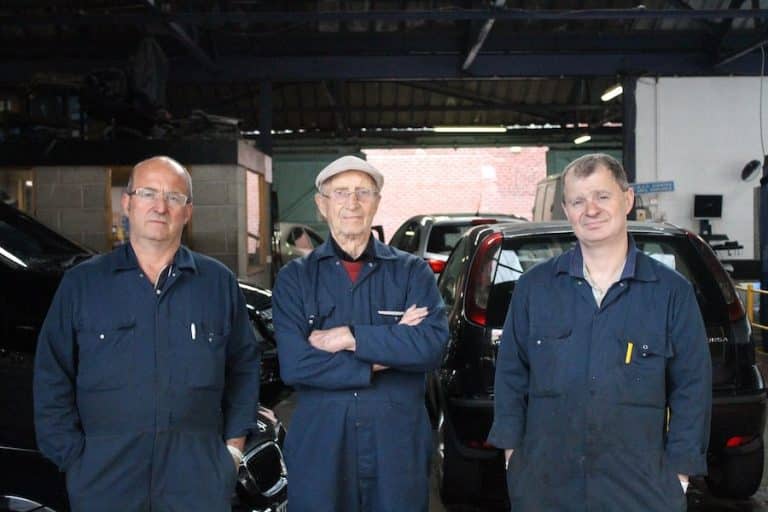
Ancoats to get even cooler as independent market set for MOT garage site

“Manchester is not Britain’s second city, it’s the first” – Jeremy Clarkson
